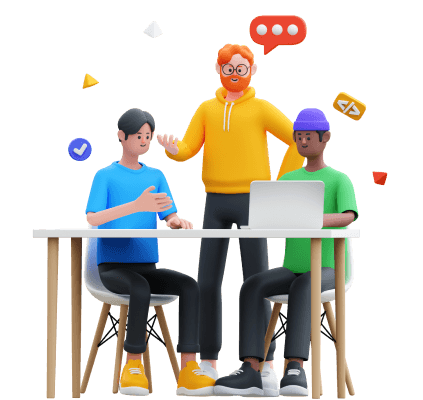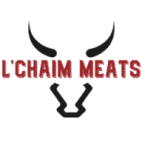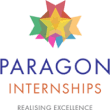This website stores cookies on your computer. These cookies are used to improve your website experience and provide more personalized services to you, both on this website and through other media. To find out more about the cookies we use, see our privacy policy.
Onboard A Premium
Golang Developer In Just 24 Hours
With a passion for coding, a commitment to excellence, and a deep understanding of the Golang framework, we are the experts you need to succeed in today's competitive tech landscape.
Clients rate Webevis Golang Developer 4.9 / 5.0 on average based on 4,330 reviews.
3 Steps To Hire A Dedicated Golang Developer With Webevis
Specify
Define your ideal candidate in terms of seniority, skills, and cultural fit. Craft a clear picture of your needs.
Choose
Now, we create a list of candidates specifically tailored to you. Evaluate and choose the best fit for your team.
Achieve
With your dream team, progress smoothly. Develop, track, and achieve your goals effectively.
Our Golang Talent Pool
- Pre-Vetted And White-Labeled Golang Developers
- Creative Solutions For Complex Challenges
- Unparalleled Command Over The Golang Environment
- Proficiency In Both Front-End And Backend Development
- Skilled In Efficient Database Administration
- Focus On Delivering Successful Project Outcomes
Our Golang Development Services
Our spectrum of Golang development services is meticulously crafted to address the multifaceted needs of your software projects. With a dedicated team of experienced and proficient Golang developers, we guarantee the delivery of stellar solutions to elevate your business operations. We are proficient in Gin, Fiber and mux frameworks and have a keen eye on the following:
Golang Profiling and Optimization
Golang Package Management
Golang Static Analysis
Concurrent Processing in Golang
Cross-Platform Golang Solutions
Golang Memory Management
Golang Testing and QA
































Ready to hire a Golang developer from our talented team?
Fuel your business success with our exceptional Golang developers. We provide superior skills, adaptable solutions, and a commitment to your goals.

Your Developer, Your Way
We tailor the hiring process to meet your unique needs. We allow you to choose a developer who perfectly aligns with your project requirements and vision.
Build Stunning Golang-Powered Apps Today!
Our commitment is to provide innovative and reliable Golang solutions that empower your business.

Golang Overview
Golang, also shortened for Go, is an open-source modern programming language introduced by Google for efficient, scalable, and reliable software development. It combines speed and simplicity to meet today’s demands with high-quality software solutions. Today, Golang is trusted by worldwide developers as a priority for building dynamic APIs, cloud computing, and web development. Also, it is widely utilized to launch robust applications, especially in e-commerce, FinTech, and enterprise systems.
Our Golang Developer’s Expertise
Webevis Technologies Golang developers are exceptional problem solvers and skilled coders who bring comprehensive solutions to life. They have relevant expertise and several years of experience designing and deploying tremendous scalable applications functioning across multiple sectors, such as FinTech, healthcare, retail, and enterprise solutions.
Moreover, our professional developers are familiar with Golang's strengths, including its concurrency and lightweight syntax, to develop efficient and scalable applications. They also focus on microservices architecture design so that complex systems can be traffic—and data-load-ready and easily maintained. This makes them a perfect fit for businesses that require modern cloud-native applications and distributed systems.
Go Frameworks Integration
Alongside the primary course of Golang programming, our developers have first-hand experience with the key Go frameworks such as Gin, Echo, Revel, and Beego. This allows them to deliver projects much faster without compromising the quality of the end product. They also employ several sophisticated libraries to improve system integration and add extra application features.
In addition, our back-end developers pay special attention when working with PostgreSQL, MySQL, or MongoDB systems. They are responsible for optimizing the interactions with databases. In addition, they have experience in Golang integration with modern DevOps applications and use modern solutions for hassle-free deployment and updates.
Why Choose Our Golang Developers?
Here at Webevis, maintainable, readable, and straightforward code is the key to success. All of our developers perform application testing to find any possible bugs and vulnerabilities that need to be solved to deliver the error-free project on time and in the future.
Suppose you are looking for a simple API or a comprehensive cloud application. In that case, our Golang developers will execute your requirements and ensure the job is done using out-of-the-box thinking and relevant technologies.
When engaging with Webevis Technologies, you have a team that not only stops at development but will keep on working with you to ensure that your project succeeds.
What to Look for When Hiring Golang Developers?
When looking around to hire a Golang developer, always focus on their expertise with Go frameworks and patterns, communication skills, and technical proficiency. This is crucial to ensure efficient results with a seamless collaboration. Now, let’s see these three key points to find the best:
Familiarity with the Go Channel Frameworks and Patterns
Firstly, Golang developers must have hands-on expertise and experience with the numerous Go-design patterns, channels, and routines. The profound knowledge, understanding, and grip on these help them effectively handle concurrent tasks.
Communication Skills
Secondly, effective and clear communication is necessary for seamless collaboration. Proper discussion of the desired software ensures your project goals are met with precision and clarity. So, hire a Golang developer who can easily understand and communicate what you want.
Technical Proficiency
Thirdly, ensure the developers you intend to hire are highly proficient in top-trending Go programming frameworks such as Echo and Gin. They should also have a solid understanding and familiarity with using the latest Go concurrency models.
Hire Golang Developers through Webevis Technologies in 4 Easy Steps!
Tell us the skills you need
When looking for the most reliable Golang developer, first share your project requirements and vision and your required skill set with us. Also, let us know if you need specific expertise to see that person.
We find the best talent for you.
At Webevis Technologies, our team shortlists the best Golang developers in town. After shortlisting, we present the most professional individuals with expertise and years of experience developing robust and scalable applications according to your needs.
Schedule interviews:
Then, we will allow you an open connection with the selected candidate. You can quickly assess the nominated candidate and ask him questions related to your application. It also helps ensure they align with your company culture and project needs.
Begin your trial
Lastly, let your Golang development journey begin with us with confidence. Talk to our Golang experts, discuss your project, and go through a risk-free demo trial. However, ensure you find a perfect match for your needs before committing.
Why choose a Golang developer?
Choosing a Golang developer for your project means opting for an expert in a language designed for efficiency, simplicity, and reliability. Golang, developed by Google, ensures quick compilation, efficient execution, and straightforward syntax, leading to faster development cycles and robust applications. Golang developers are adept at handling concurrent processes, making them ideal for scalable applications, microservices, and high-performance systems. By hiring a Golang developer, you invest in modern, industry-standard solutions that stand the test of time and scale.
What are the key advantages of using the Golang framework for software development?
1.
Concurrent Programming
Golang's built-in support for concurrency enables developers to efficiently manage thousands of tasks simultaneously.
2.
Simplicity
The language's clean and minimalist syntax ensures easy readability and maintainability of the code.
3.
Fast Execution and Compilation
Go programs compile to machine code, resulting in fast execution speeds, while the compiler is incredibly efficient.
4.
Standard Library
Golang has a comprehensive standard library covering a wide range of programming needs.
5.
Cross-Platform
Go facilitates easy cross-compilation, allowing developers to build applications from a single code base for different platforms.
What are some essential tools used by Golang developers during the development process?
Golang developers rely on various tools to streamline development and enhance code quality. Here are a few noteworthy ones:
1.
GoDoc
Automatically generates documentation for Go projects.
2.
GoLint
Linting tool for identifying stylistic errors in Go code.
3.
Go Vet
Examines source code and reports suspicious constructs.
4.
GoFmt
Formats Go programs to follow the language's style guidelines.
5.
Delve
A debugger for the Golang programming language.
6.
Goroutines Profiler
For profiling and optimizing concurrent programs.
7.
Dep
A dependency management tool for Go.
8.
Visual Studio Code or GoLand
Popular IDEs for Go development with rich features and extensions.
What are the key factors to consider when writing a job description to hire a Golang developer?
When crafting a job description to hire a Golang developer, consider the following key factors:
1.
Skill Level
Specify whether you are looking for a junior, mid-level, or senior Golang developer.
2.
Experience with Go
Highlight the necessity for proven experience with Go, possibly specifying the number of years of experience required.
3.
Understanding of Concurrency
Since concurrency is a significant feature of Go, the developer should have a firm grasp of concurrent programming.
4.
Knowledge of Go Tools and Libraries
Specify any particular tools or libraries the developer should know.
5.
Problem-Solving Skills
Emphasize the need for excellent problem-solving skills, which are crucial for any development role.
6.
Collaboration and Communication
The ability to work well in a team and communicate effectively is paramount.
7.
Understanding of Other Technologies
If the project requires integration with other technologies, mention the need for experience or familiarity.
What are the essential Golang developer interview questions
When hiring Golang developers for your team, the following questions and answers can be used as a starting point to evaluate the knowledge and suitability of candidates.
1.
Can you explain how Go's garbage collection works?
2.
How does it handle concurrent programming, and what are goroutines?
3.
Can you describe a situation where you optimized a Go application for performance?
4.
How do you manage dependencies in a project?
5.
Can you explain the difference between a buffered and an unbuffered channel?
6.
How does Go's interface system work, and how is it different from other languages?
7.
Can you provide examples of how you've previously structured a project?
8.
What tools do you use for testing Go applications, and how do you ensure code quality?
9.
Can you explain how error handling works in Go?
10.
How do you stay updated with Go's latest developments and best practices?
Addressing these areas ensures a comprehensive understanding of the candidate's compatibility and fit for the role.






















